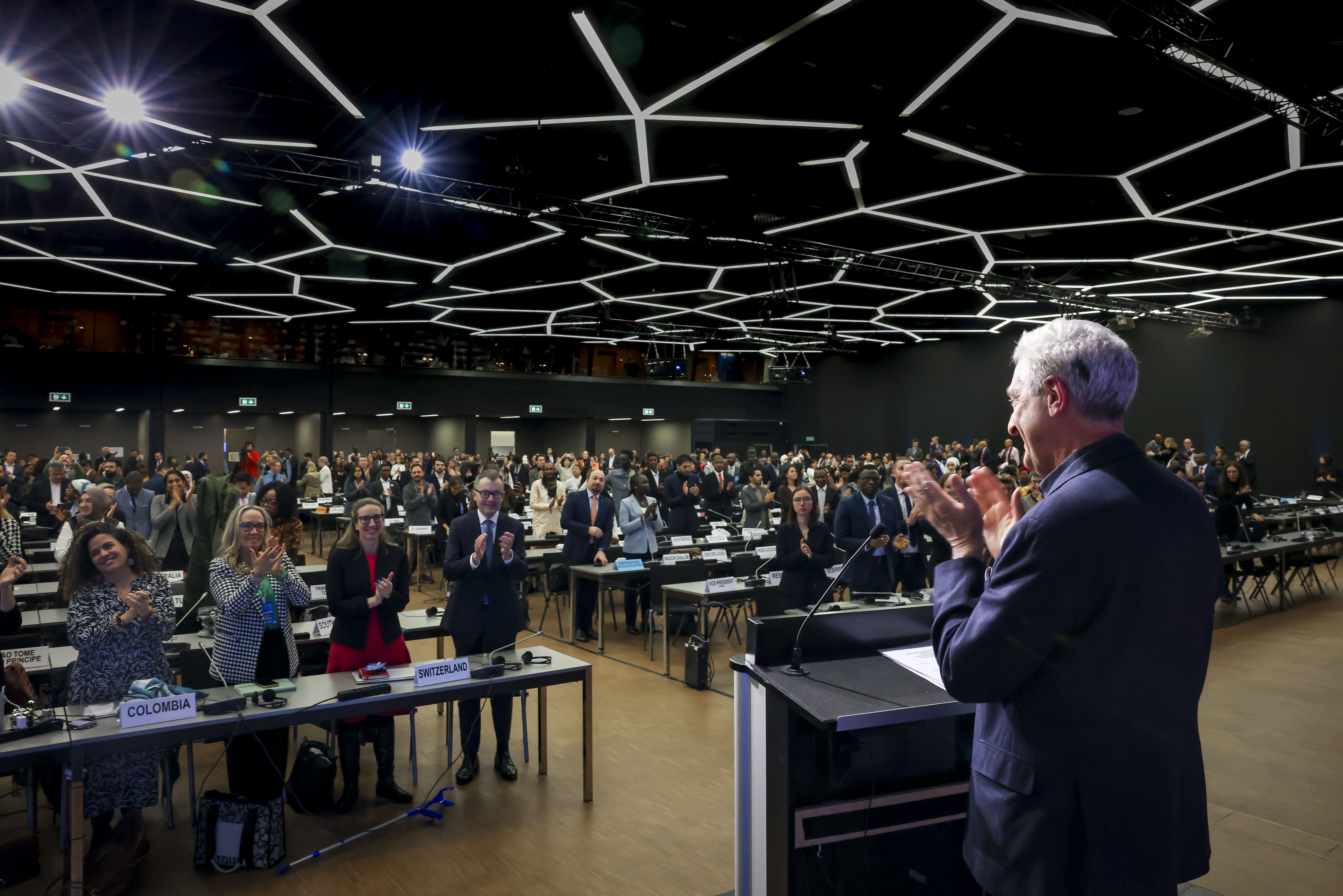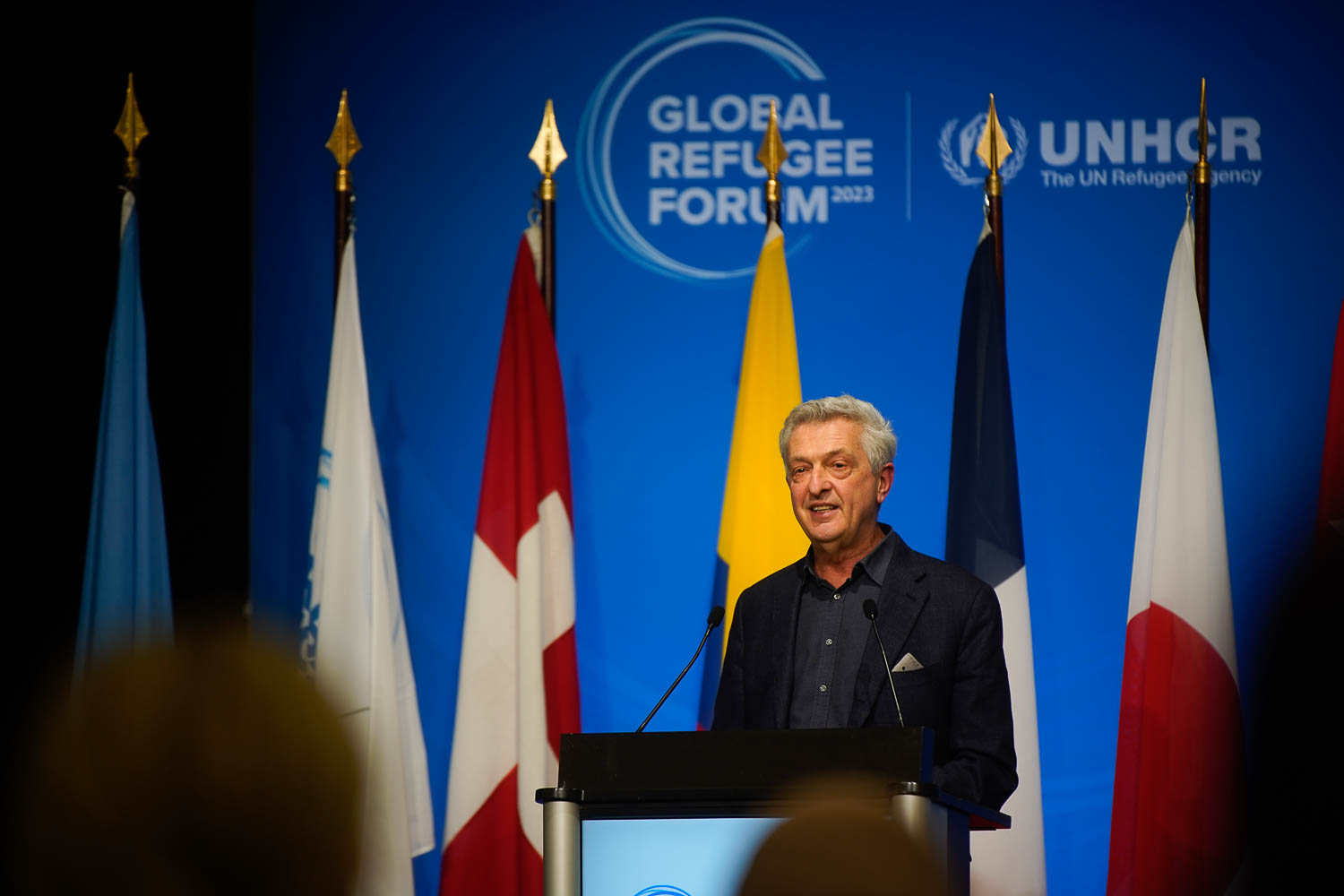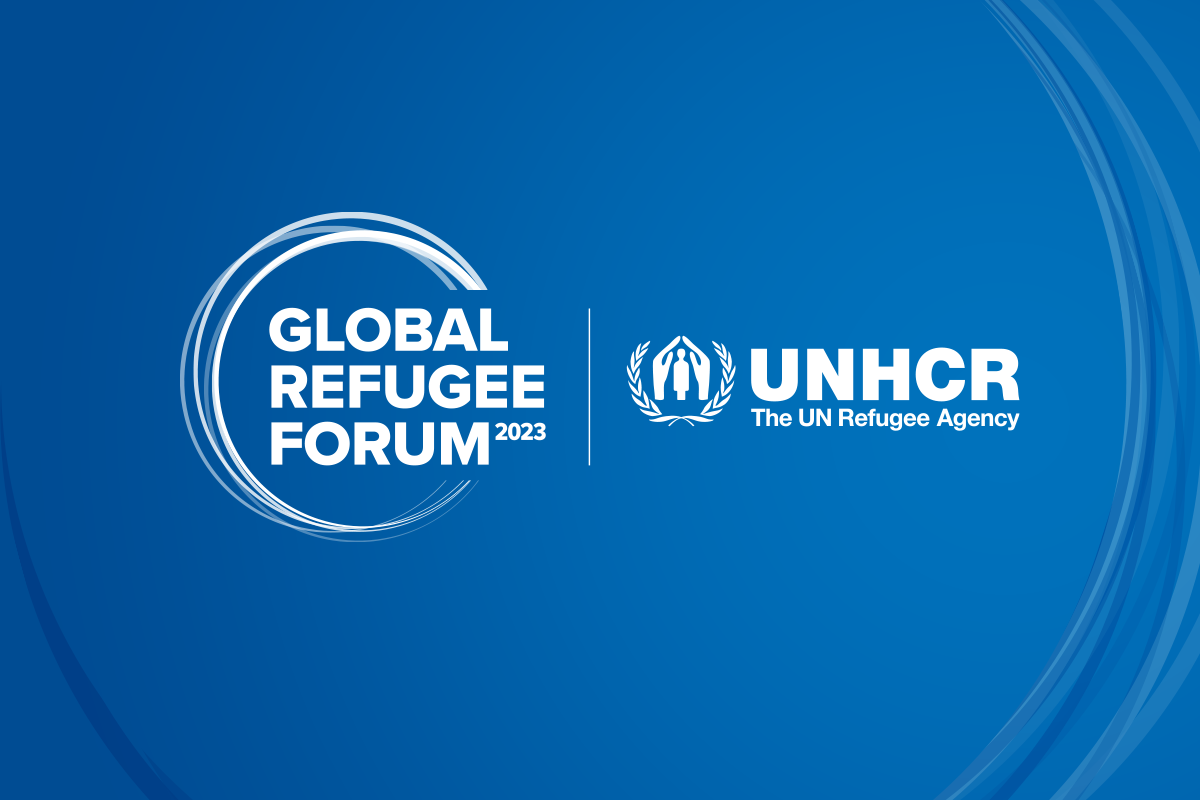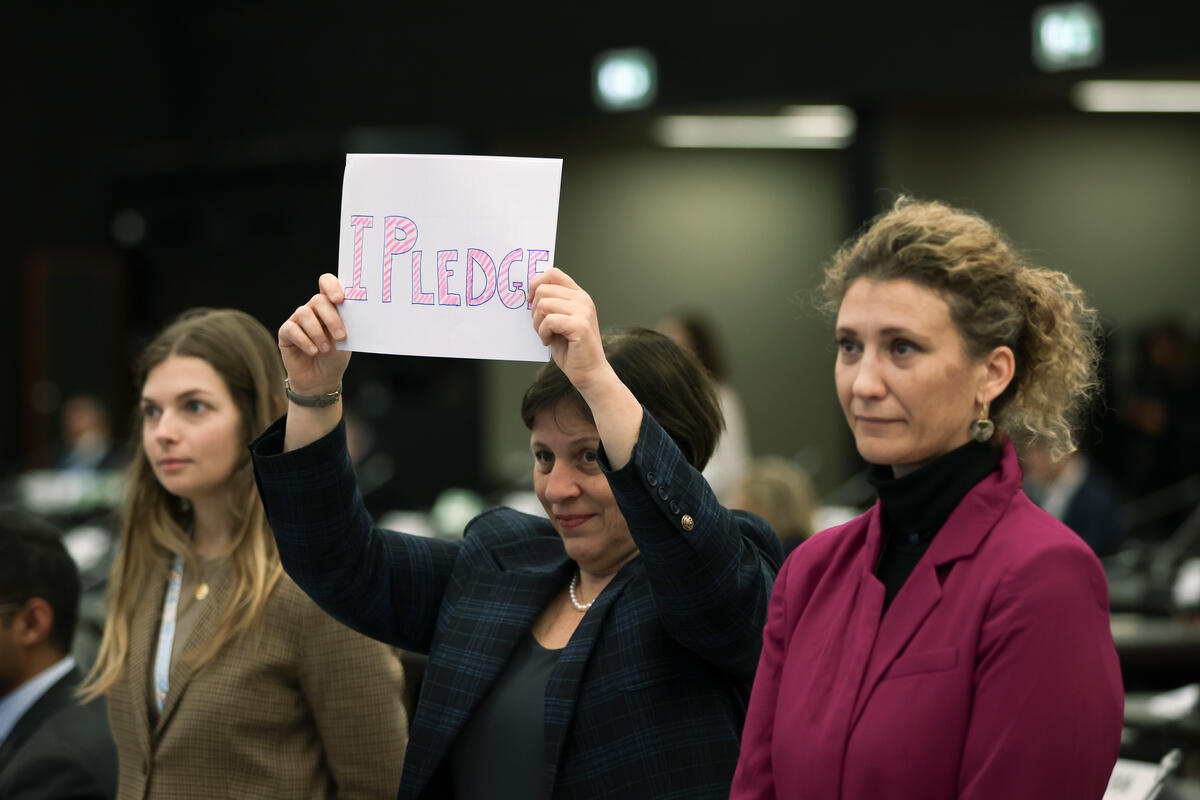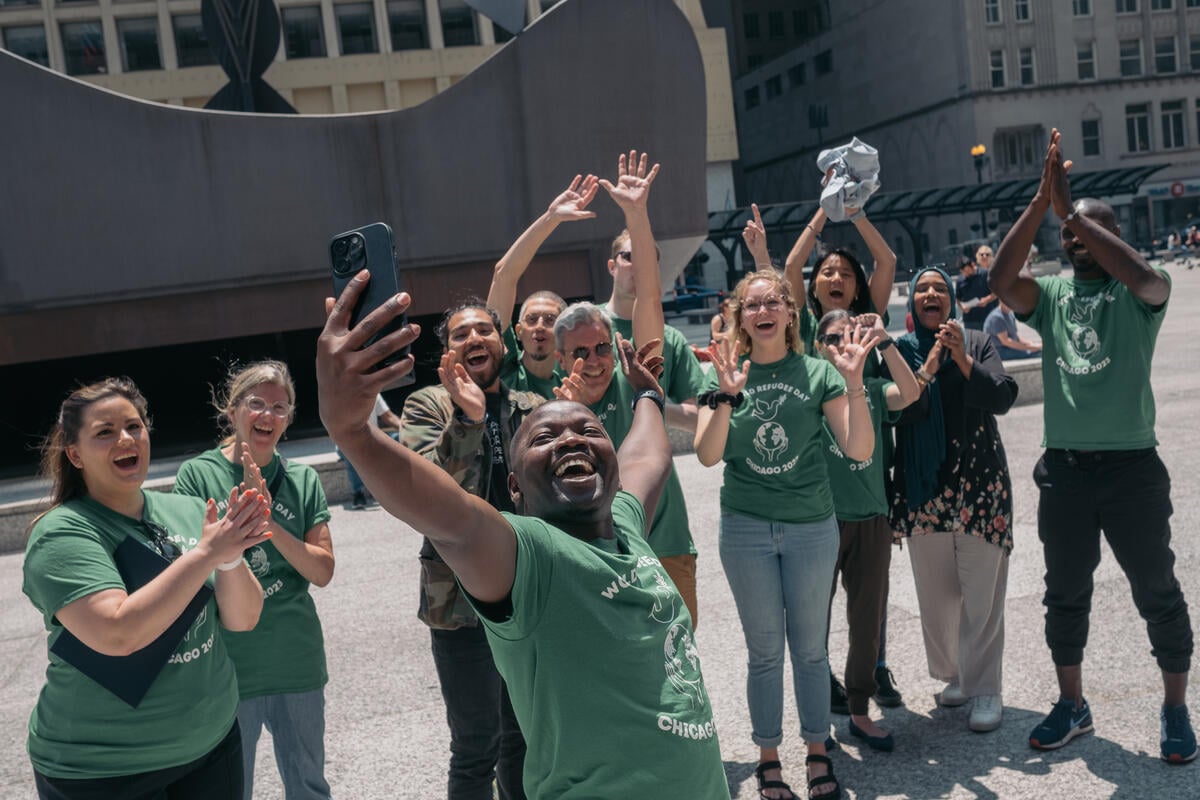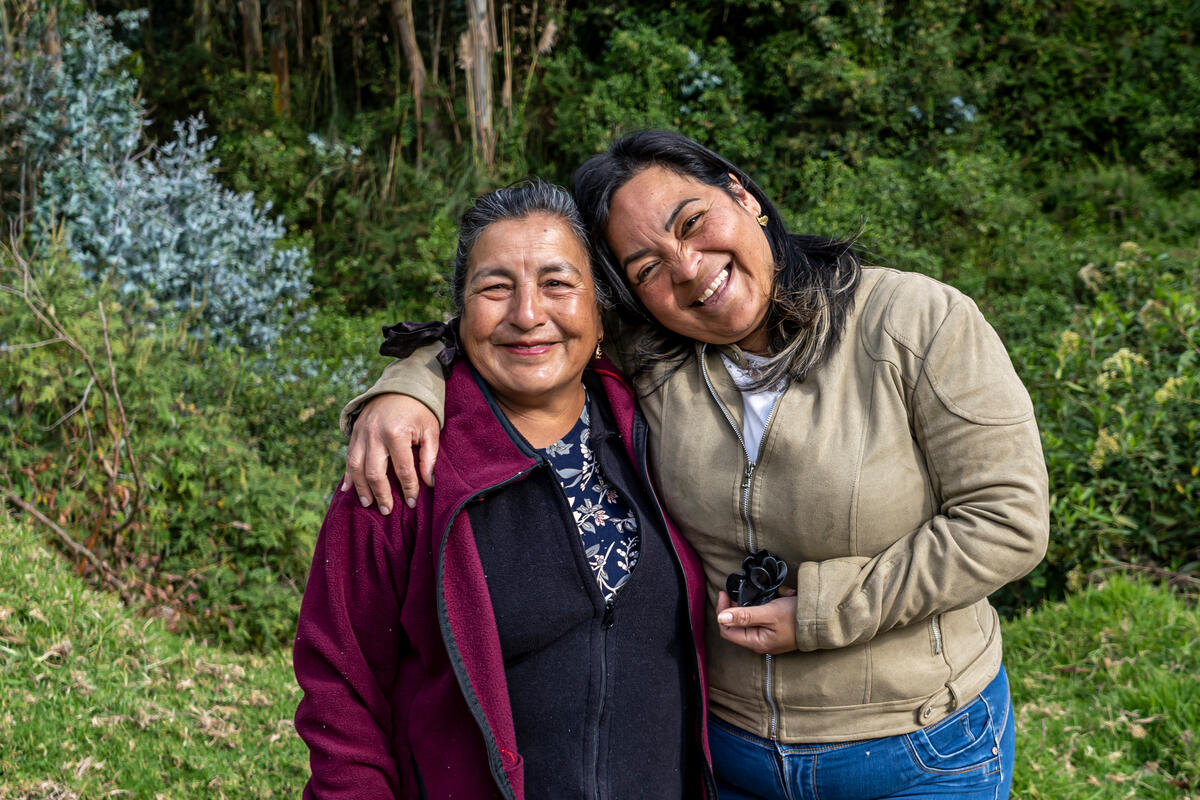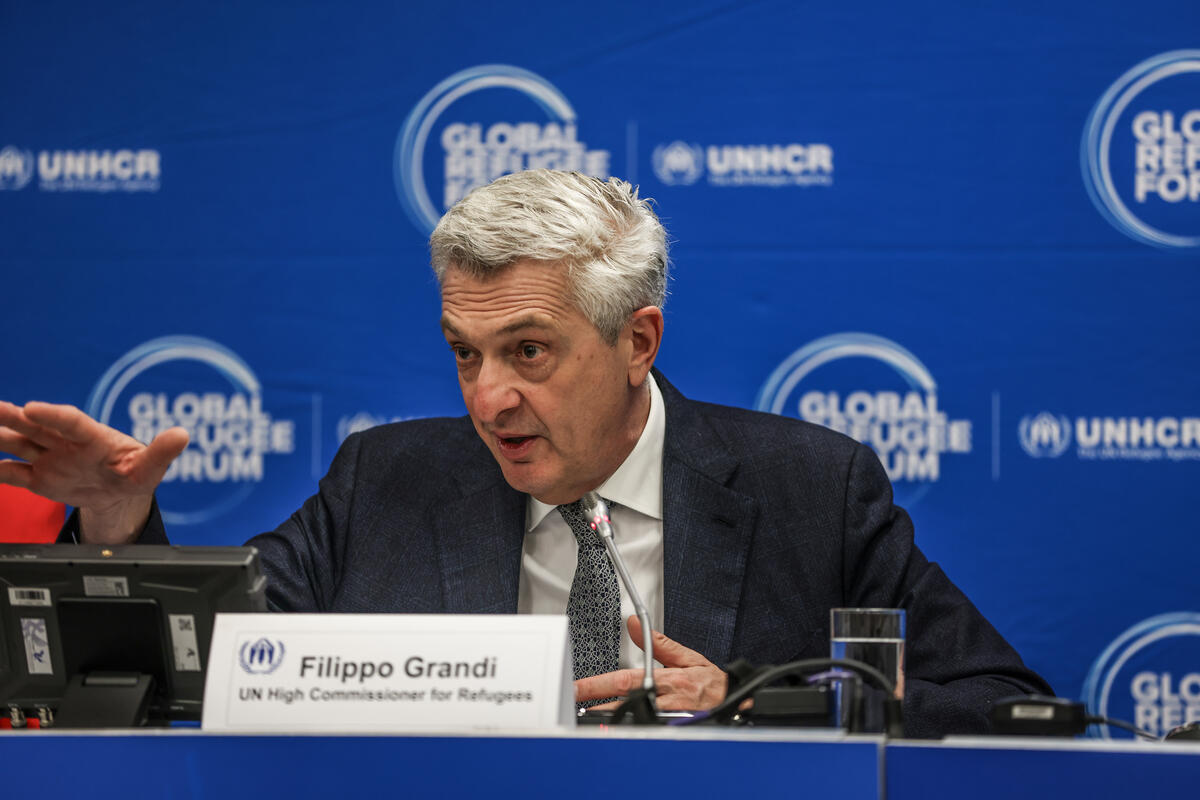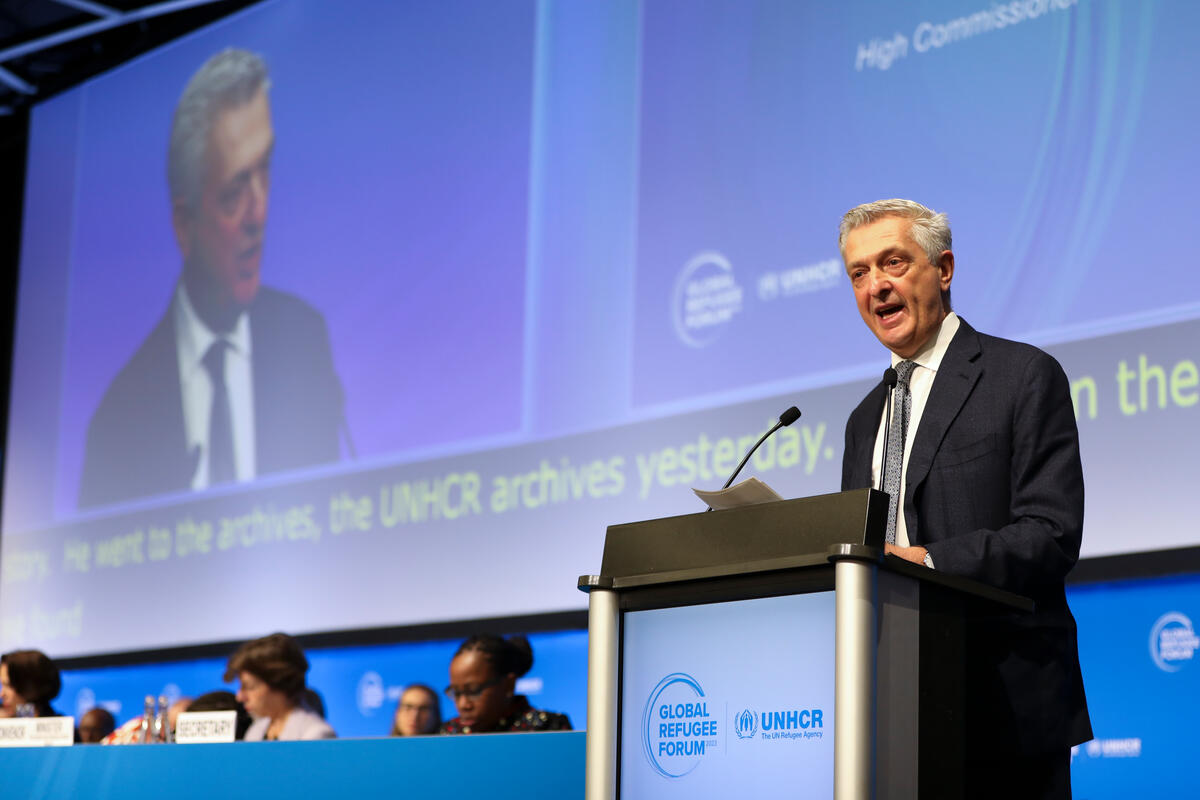Syrian seamstress builds brand loyalty from a refugee camp
Standing inside Amina’s brightly lit workshop, colourful fabric samples hanging from the walls and shelves stacked with custom-made garments for clients as far afield as Europe, it is easy to forget that this thriving business is located in the middle of a sprawling camp for Syrian refugees in the Kurdistan Region of Iraq.
Business may be booming now, but when Amina started working as a seamstress it was a question of survival. The 39-year-old was living with her husband and seven children in the Syrian capital Damascus, but her life was turned upside down after conflict broke out in 2011.
“We were living a comfortable life and everything was available,” she remembered. “When the war began, random shelling started, there was fear and a lack of security. My husband’s workplace was shelled, and he died there in Damascus.”
Widowed and with no means of supporting her children, Amina initially moved in with her husband’s family in Qamishly in northeastern Syria, before growing insecurity there saw her decide to join her mother and siblings in seeking exile in neighbouring Iraq.
Settling in the city of Duhok in the Kurdistan Region of Iraq and in desperate need of an income, Amina turned to a skill she had acquired as a young woman to provide a solution.
Despite studying sciences in school, she had always had a passion for dressmaking. “After I finished high school, my late father sent me to one of our relatives, who was a very good tailor. She taught me everything there is to know about dressmaking,” she said.
Working from home using a basic sewing machine that was all she could initially afford, Amina gradually began to establish herself, picking up clients among the locals in Duhok as well as fellow Syrian refugees.
But despite securing an income, the cost of trying to raise her children in the city proved too high. Amina took the decision to move with them to Domiz refugee camp, some 10 kilometres outside Duhok, where they could secure free shelter and services such as healthcare and education.
"I have loyal clients."
There are currently more than 228,000 Syrian refugees living in Iraq, almost entirely in the Kurdistan Region. Around 40 per cent of refugees live in camps such as Domiz, which has more than 32,000 residents, with the remainder living in cities, towns and rural areas across the region.
With some financial help from her mother and siblings, Amina was able to afford the modest cost of renting a workshop for her business in the camp and has never looked back. As well as finding new clients inside the camp, her former customers stuck by her too, sometimes going to great lengths to retain her services.
“I have loyal clients from Dohuk. They still come to my shop,” she said. “The garments they like are different – they love Kurdish traditional dresses. The prices are also different from the camp [clients].
“Some clients, they left the country and went to Europe,” she added. “They call me through the internet. They send me designs and I make outfits for them. When they come during the summer for visits, I give them their finished work or send it back with their friends.”
"After training with Amina, I feel so confident."
Now in a position where she can provide her children with the essentials they need, Amina tries to do what she can to help others in the camp. She will often waive her usual fees to make or repair clothes for families she knows are struggling financially.
Her most significant contribution, however, has been to pass on her skills to other refugees, providing them with an income of their own.
“Here in the camp we have a lot of women in need of a job or training,” she explained. “I take people in and allow them to train with me for free. So far I have trained 12 young women and two young men who have gone on to start their own businesses.”
She also provides group training courses at a community centre in the camp run by UNHCR, the UN Refugee Agency. One of the trainees, Shahinaz, explains how the classes have inspired her to try earning a living as a seamstress.
“She taught us how to do kids clothes, Kurdish traditional dresses and long gowns,” Shahinaz said. “After training with Amina, I feel so confident and I will open my own shop and work on my own.”
"I hope that all refugees can go home."
Promoting entrepreneurship and access to safe and decent work are key to achieving self-reliance for refugees. This allows them to live more dignified lives, reduce their dependence on aid and make a positive economic contribution to their host communities.
These issues will be among those discussed at the Global Refugee Forum to be held this December, when participants will explore initiatives and other ways to better share and strengthen the international response to refugee situations.
The Forum is a key element in the implementation of the Global Compact on Refugees, which was agreed upon by the UN General Assembly in December 2018. The event will bring together governments, international organizations, local authorities, the private sector, host community members and refugees themselves.
While Amina is grateful for the occupation that has kept her afloat and allowed her to make a contribution to those around her, she still dreams of a better future for her own family and other Syrian refugees.
“I want to develop my work and my life. I want to compensate my children for the rough times they have been through,” she said. “Even though we are living here in safety, we are still refugees. I hope that all refugees can go home, even those abroad and living well. It is nice to go back home.”


